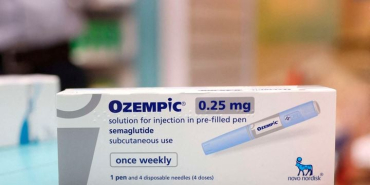The Alarming Increase of Cancer Among Millennials

Cancer rates among millennials, those born between 1981 and 1995, are increasing sharply, with global cases in people under 50 rising by nearly 80 percent between 1990 and 2019.
Deaths have also climbed by 28 percent, highlighting growing concern over the environmental and lifestyle factors driving this trend. Most of these cancers are not inherited. Around 80 percent are considered sporadic, meaning they develop through accumulated DNA damage caused by external influences such as diet, alcohol use, lack of sleep, and chronic stress.
Researchers say these patterns suggest that the rise in early-onset cancers is closely tied to changes in modern living rather than genetics. Childhood obesity is among the most significant contributors. Rates have risen dramatically worldwide since the 1980s.
The World Health Organization reports that in 2022, more than 390 million children and adolescents aged 5 to 19 were overweight, and 160 million were obese. Obesity increases the risk of insulin resistance, inflammation, and hormonal imbalances-factors linked to cancers of the bowel, breast, and uterus. These effects often persist into adulthood.
A meta-analysis cited by the Colon Cancer Foundation found that people with a high body mass index (BMI) in youth face a higher risk of colorectal cancer later in life-39 per cent higher for men and 19 percent higher for women.
Shifts in diet have also affected the gut microbiome.
Ultra-processed foods reduce bacterial diversity and encourage inflammation, which can lead to digestive disorders such as irritable bowel syndrome and small intestinal bacterial overgrowth. These conditions appear to be more common among millennials, reflecting the health impact of processed food consumption and sedentary habits.
Alcohol use is another major risk factor. While older generations often drank moderately and regularly, millennials are more likely to binge drink. This pattern increases exposure to acetaldehyde, a carcinogenic by-product of alcohol metabolism classified by the International Agency for Research on Cancer as a Group 1 carcinogen, alongside tobacco.
Research published in Environmental Science & Technology has also found that some beers contain perfluoroalkyl substances (PFAS), known as “forever chemicals”, which are associated with higher rates of kidney and testicular cancers
Sleep deprivation linked to digital lifestyles has further compounded the problem. Studies suggest that millennials and Generation Z sleep 30 to 45 minutes less per night than baby boomers, reducing melatonin production. Melatonin helps regulate cell repair and protect DNA from damage. Lower levels can disrupt circadian rhythms and weaken the body’s tumour-suppressing mechanisms, increasing long-term cancer risk.
Chronic stress is also seen as a contributing factor. Millennials face persistently high cortisol levels, driven by economic uncertainty, digital connectivity, and shifting social expectations. Prolonged stress promotes inflammation, weakens immune defences, and may reactivate dormant cancer cells.
Epidemiological data indicate that people with high stress levels may face up to twice the risk of dying from cancer compared with those who manage stress more effectively. Together, these factors reveal how lifestyle and environment are reshaping cancer risk for younger generations.
Experts emphasise that prevention efforts must look beyond clinical care to address the social and behavioural factors that underpin long-term health.














Add new comment